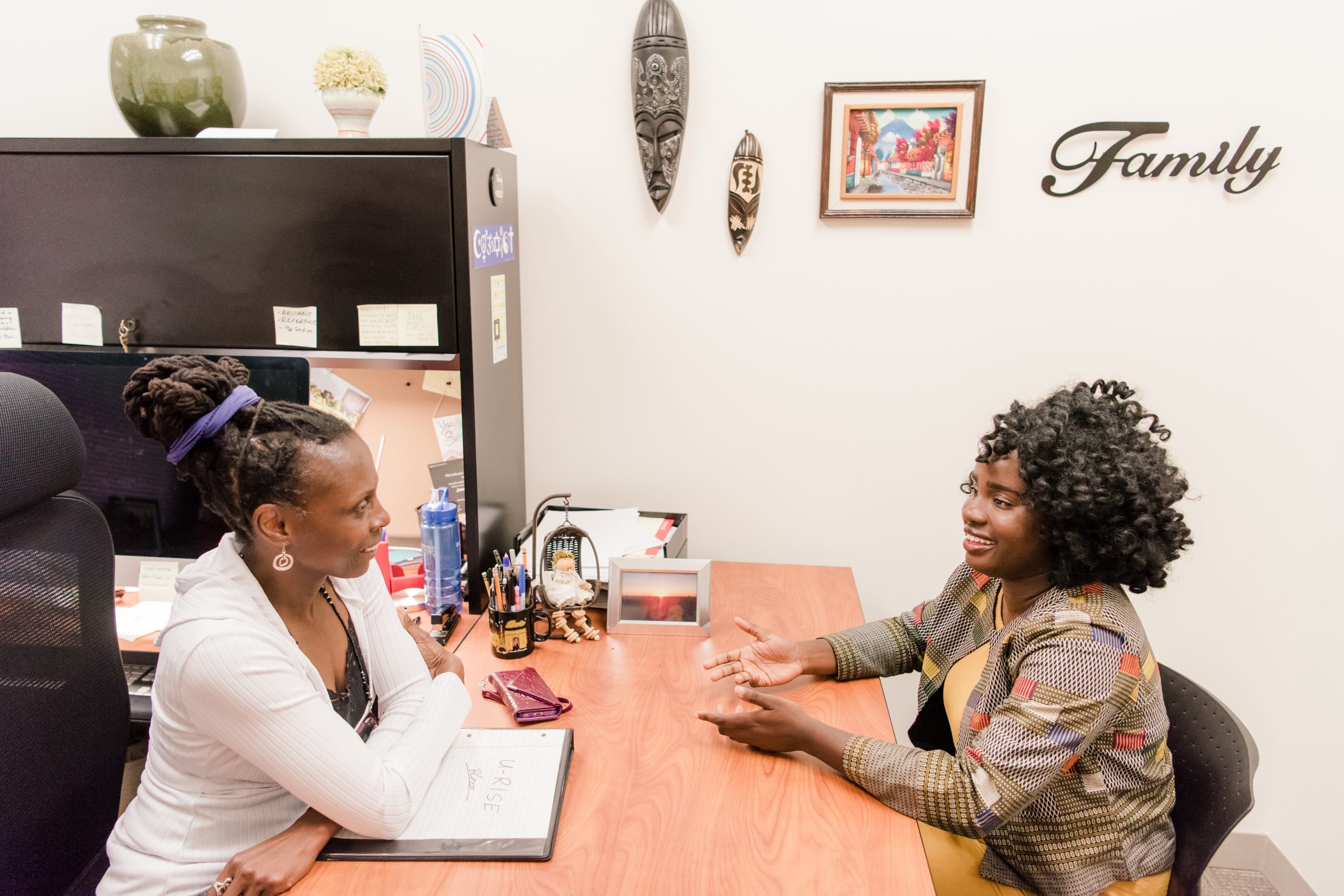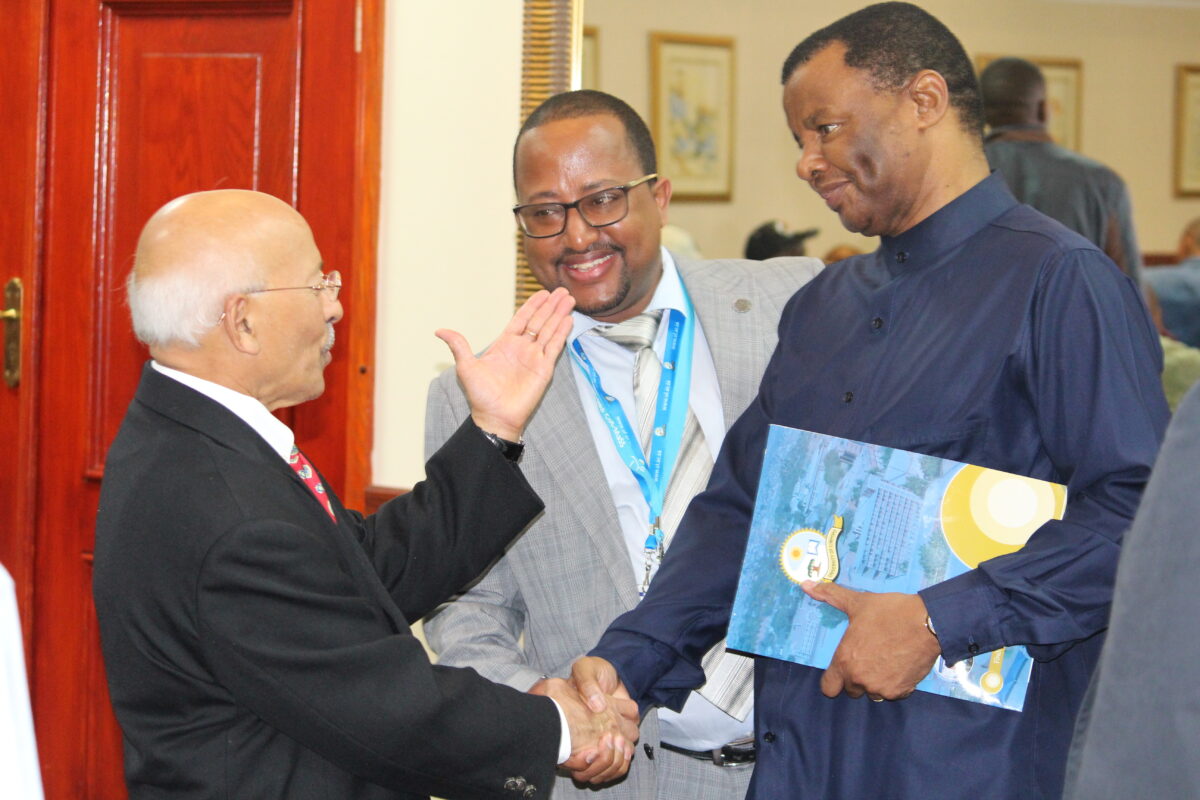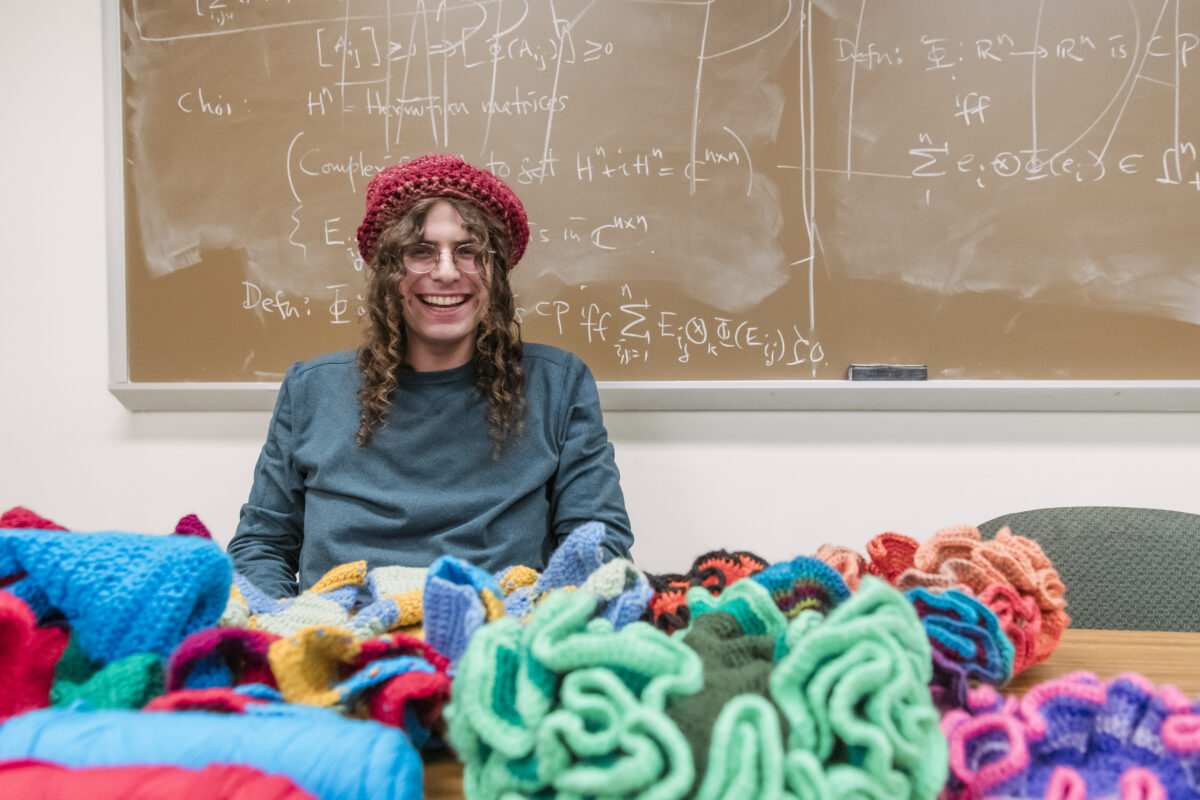This spring, the first cohort of ESTEEMED Scholars arrives at UMBC on their path to revolutionizing biomedicine. The new program stands for Enhancing Science, Technology, Engineering, and Mathematics Educational Diversity. Funded with a $870,000 grant from the National Institute of Biomedical Imaging and Bioengineering (NIBIB), ESTEEMED will serve students pursuing a wide range of STEM majors who have an interest in bringing engineering solutions to biomedicine challenges.
The ESTEEMED program will support first- and second-year students, with the goal of preparing them to apply for advanced honors programs (such as the U-RISE Scholars) in their third and fourth years. Scholars will participate in many of the same activities as UMBC’s Meyerhoff Scholars, such as summer bridge experiences that build community, structure and support to apply for research opportunities, funding for academic conference travel, peer and faculty mentoring, and intensive academic advising. They will also have their own unique experiences.
Building resilience
Among elements that make the ESTEEMED program distinctive are monthly casual gatherings for the scholars and UMBC faculty. These opportunities are “designed to promote the community and STEM identity of the students,” shares Patrice Darby, general associate of the Meyerhoff Scholars Program. “They can mingle with the faculty to see themselves as a ‘we,’ as in, ‘I belong here, I am part of this community.’”
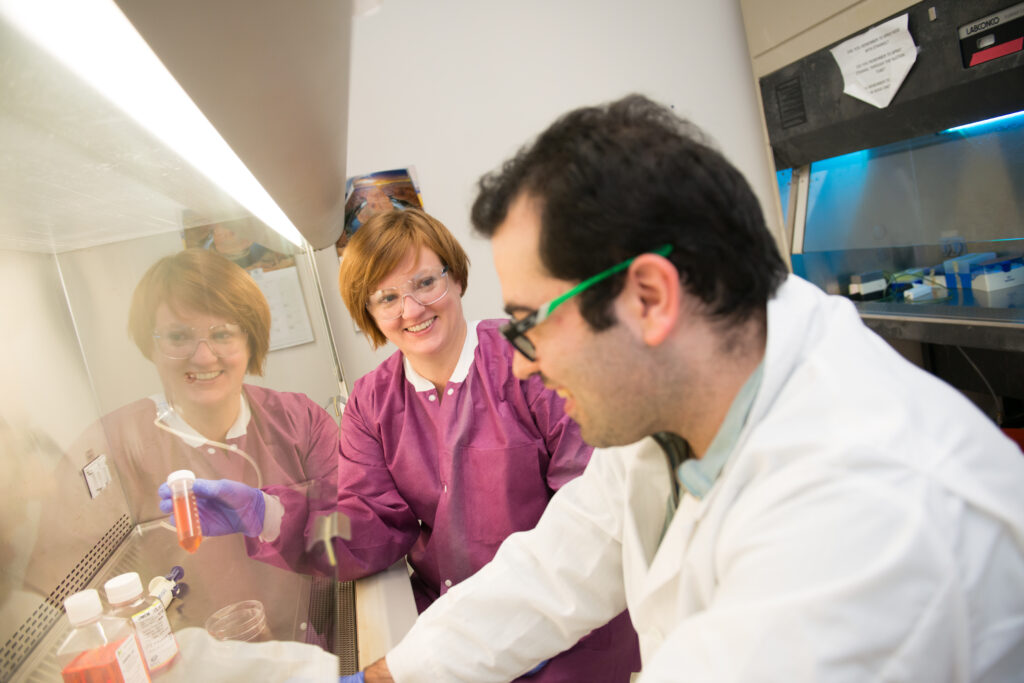
Seminar courses also create opportunities for students to learn about faculty members’ career journeys. “I am particularly excited to lead our seminar series for first-year students,” shares Jennie Leach, associate professor of chemical, biochemical, and environmental engineering, and the lead on the grant. “In these seminars,” Leach says, “UMBC faculty and alumni are invited to talk about their research, share their personal story, and provide wisdom that they developed during their path from training to their current career.”
A Second Year Experience course will give the ESTEEMED Scholars the skills and confidence to continue progressing in their degrees. Topics may include science communication skills, leadership training, and habits and practices that can help them thrive through common challenges STEM majors face in their sophomore year.
Setting the course
In addition, each student will generate an Individual Development Plan (IDP). “The IDP has students begin with the end in mind, and think about ‘What are my long-term career goals, and what steps can I take now to get there?’” Darby says. “We bring in a specialist to help students flesh out what it is they want to do, and what is the most effective pathway to get there.”
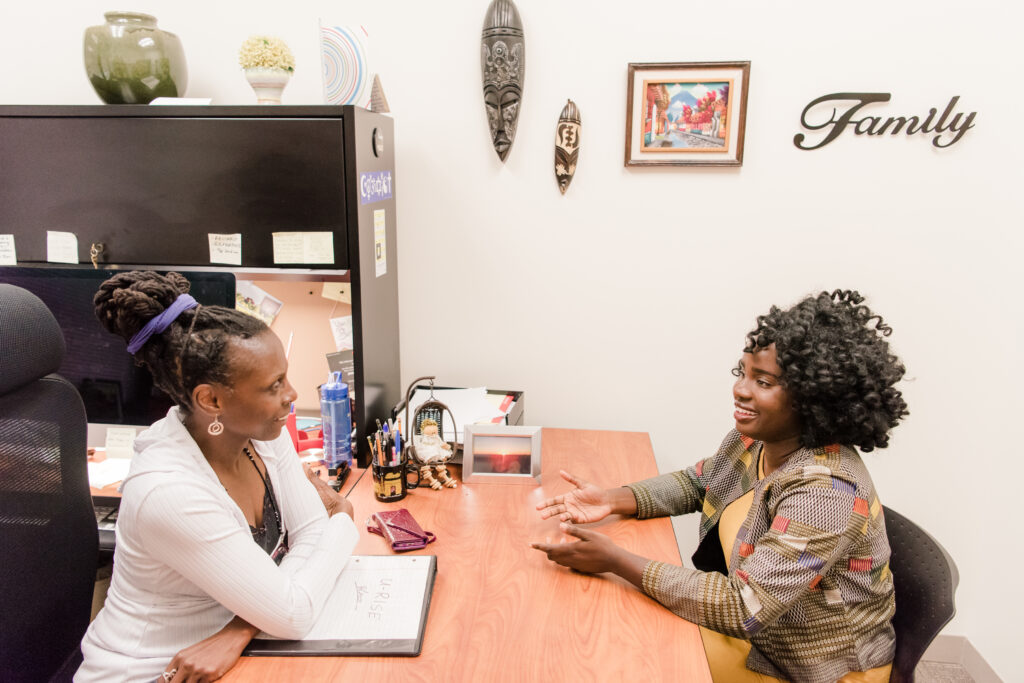
One thing the scholars will work on with the consultant is how to have effective conversations with faculty. “The IDP gives students the tools they need to have pivotal conversations with their research mentors,” Darby says, “to put everybody on the same page and set them up for success, and really propel them into their Ph.D. and M.D.-Ph.D. programs.”
A national model—again
Before launching ESTEEMED at UMBC, the university played an outsize role in the program’s development at a national level. In 2012, NIBIB reached out to UMBC and asked if the Meyerhoff Scholars Program would be willing to pilot a program for students interested in applying engineering to biomedical applications. The Meyerhoff program is nationally renowned as a “gold standard” for producing hundreds of leading STEM researchers from underrepresented groups.
UMBC said yes to NBIB’s invitation to launch th pilot, which also served as a research study to inform the national program structure. At the end of the four-year pilot, UMBC produced a report with recommendations for the formal creation of the program.
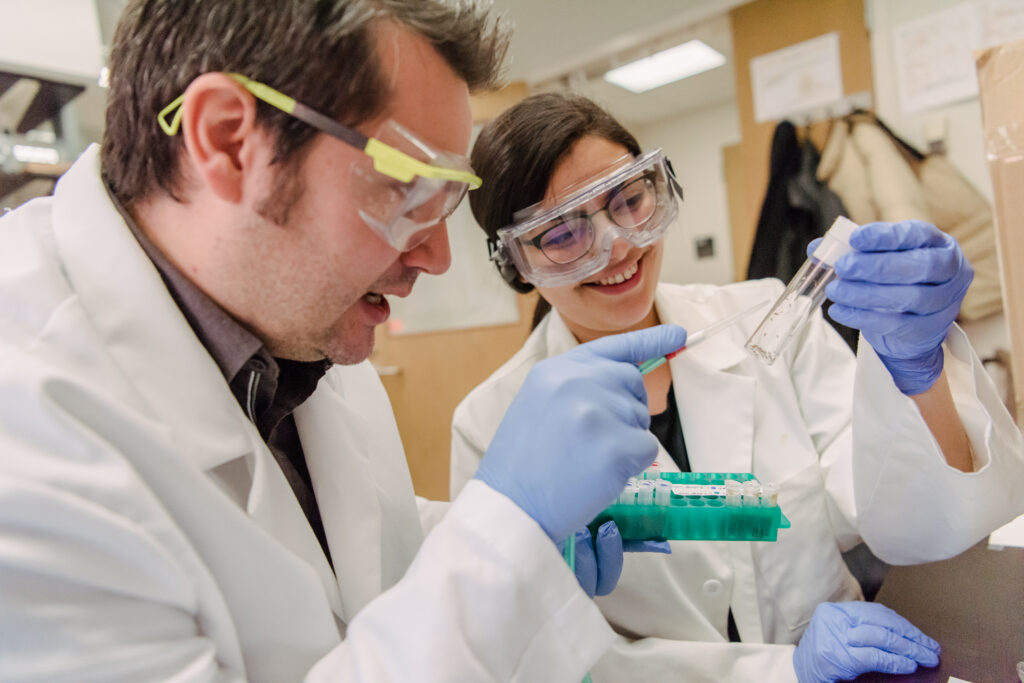
“The pilot served as a model that they could take and adapt to launch a nationwide initiative, which became ESTEEMED,” says Keith Harmon, director of the Meyerhoff Scholars Program. The study recommended that all institutions joining the program be required to provide key elements for success, such as summer bridge, peer advising, and early exposure to research.
NIBIB listened, and ESTEEMED now closely resembles UMBC’s proven vision for effectively building community, supplying ample support, and instilling confidence and independence in students. Together, these components set students on a path to persist in STEM and earn graduate degrees.
Now that UMBC is officially part of the program, “We have a new project to give more students a distinctive experience,” Harmon says.
‘Eagerness into action’
UMBC’s faculty also make the university particularly well-suited to offer ESTEEMED Scholars a rich interdisciplinary research experience. The scientific leads on the grant are Leach and Phyllis Robinson, professor of biological sciences. They and several of their colleagues already take engineering approaches to biomedicine. They also have significant depth of experience mentoring and publishing with undergraduate students from a range of backgrounds.
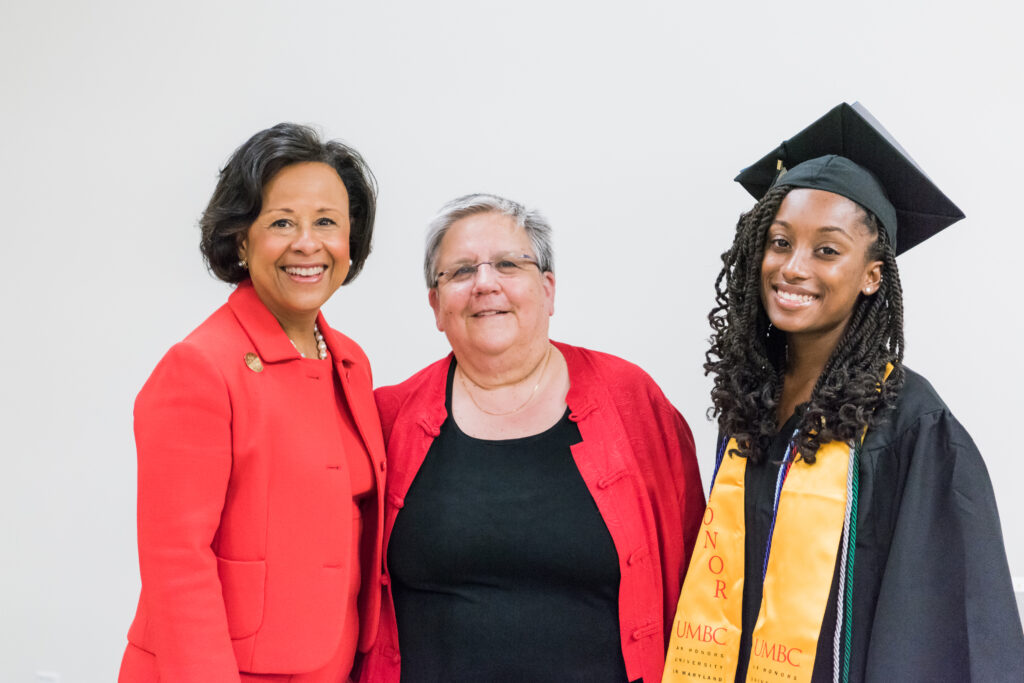
“That was a strength of our application, that we have wonderful faculty at UMBC whose records met those requirements,” Harmon says. “We have experienced and dedicated faculty with strategies and mentoring styles that promote success and inclusion.”
Harmon adds that the research by those same faculty mentors “has that thread, that connection, to bridging engineering and physical and computational sciences with medicine and health and biomedicine.”
The new scholars are poised to take in their mentors’ knowledge and then create their own for the benefit of society. “Today’s students are eager to use science and engineering to make the world a better place,” Leach says. “The ESTEEMED Scholars program will support students in putting this eagerness into action via engagement in real biomedical research.”
Banner image: STEM BUILD Trainee Alexis Waller ’18, biological sciences, with her mentor, postdoctoral fellow Pengfei Ding.
All photos by Marlayna Demond ’11 for UMBC.
Tags: CNMS, COEIT, MeyerhoffScholars, Undergraduate Research

